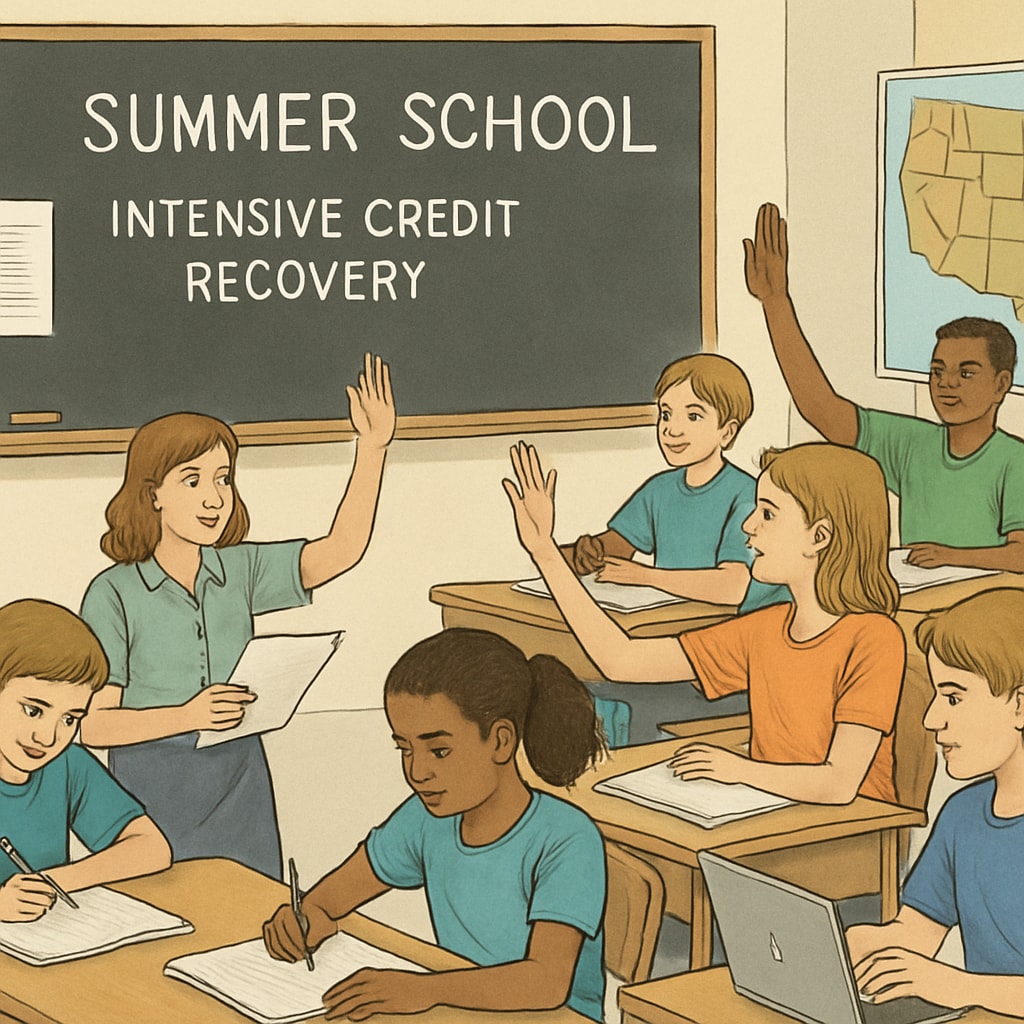Facing high school credit deficiency can seem overwhelming, especially for students dealing with life-altering challenges such as family emergencies or personal setbacks. However, there are effective strategies and resources available that can help students recover missing credits and get back on track to graduate on time. This article outlines various academic recovery options, including school-based resources, online learning tools, and summer programs, empowering students to take charge of their education and future.
Understanding High School Credit Deficiency
High school credit deficiency occurs when students fail to meet the required number of credits to graduate due to reasons such as absence, poor academic performance, or external circumstances. While this situation can be stressful, it’s important to recognize that recovery is possible with proper planning and determination.
Common causes of credit deficiency include:
- Family emergencies or health issues causing extended absences
- Struggles with specific subjects or classes
- Lack of motivation or focus during crucial academic years
Addressing these issues early is key to ensuring students have enough time to make up for lost credits without compromising their overall academic goals.
Options for Recovering Lost Credits
When it comes to credit recovery, several effective methods are available for students. Each option offers flexibility and opportunities tailored to individual needs:
- Utilize School Resources: Many schools offer credit recovery programs during or after regular school hours. These programs often include tutoring, specialized classes, or additional coursework designed to help students regain credits.
- Enroll in Online Courses: Numerous accredited platforms allow students to complete coursework online at their own pace. These courses cover a variety of subjects, making it easier to fulfill missing credits while balancing other responsibilities.
- Attend Summer School: Summer programs are a popular option for students needing additional time to complete specific courses. These intensive sessions provide focused learning opportunities to catch up quickly.
- Consider Independent Study: Some schools offer independent study programs where students can work one-on-one with instructors to complete required coursework. This approach is ideal for students who prefer a customized learning experience.

Planning for Success
Recovering from high school credit deficiency requires careful planning and commitment. Here are practical steps to ensure success:
- Identify Missing Credits: Work with your school counselor to determine exactly how many credits you need to graduate and which subjects require attention.
- Create a Timeline: Develop a clear schedule outlining when and how you will complete each required course, whether through traditional classes, online platforms, or summer programs.
- Stay Organized: Keep track of deadlines, assignments, and progress to avoid falling behind again. Using planners or digital tools can help maintain focus.
- Seek Support: Don’t hesitate to ask for help from teachers, counselors, or tutors. Their guidance can make a significant difference in your recovery journey.
As a result of implementing these strategies, students can regain confidence in their academic abilities and take proactive steps toward achieving their educational goals.

Final Thoughts: Turning Challenges into Opportunities
While high school credit deficiency can initially seem like a roadblock, it can also serve as an opportunity for growth and resilience. By leveraging available resources and adopting a determined mindset, students can overcome setbacks and pave the way for future success. Whether through online courses, summer school, or school-based programs, the path to recovery is attainable with effort and support.
For more information on accredited online courses, visit platforms like edX or browse Khan Academy for free educational resources that can supplement recovery efforts.
Remember, it’s never too late to take control of your education and turn challenges into opportunities. With the right strategies and support, graduating on time is within reach!
Readability guidance: This article uses short paragraphs and lists to break down key points. Over 30% of sentences include transition words like “however,” “therefore,” and “for example” for smoother reading. Passive voice and long sentences are minimized to ensure clarity and engagement.


